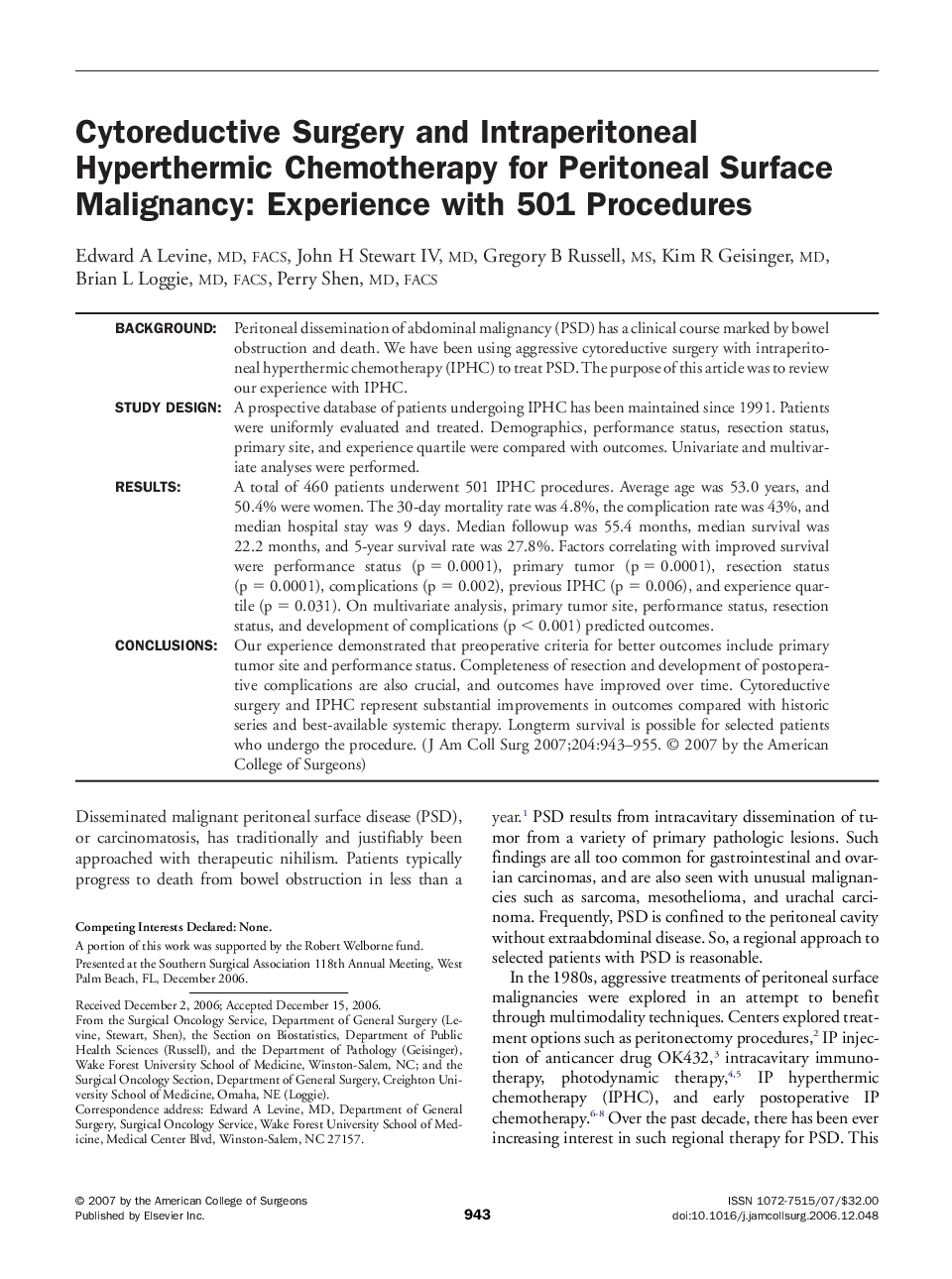| Article ID | Journal | Published Year | Pages | File Type |
|---|---|---|---|---|
| 4294565 | Journal of the American College of Surgeons | 2007 | 11 Pages |
BackgroundPeritoneal dissemination of abdominal malignancy (PSD) has a clinical course marked by bowel obstruction and death. We have been using aggressive cytoreductive surgery with intraperitoneal hyperthermic chemotherapy (IPHC) to treat PSD. The purpose of this article was to review our experience with IPHC.Study DesignA prospective database of patients undergoing IPHC has been maintained since 1991. Patients were uniformly evaluated and treated. Demographics, performance status, resection status, primary site, and experience quartile were compared with outcomes. Univariate and multivariate analyses were performed.ResultsA total of 460 patients underwent 501 IPHC procedures. Average age was 53.0 years, and 50.4% were women. The 30-day mortality rate was 4.8%, the complication rate was 43%, and median hospital stay was 9 days. Median followup was 55.4 months, median survival was 22.2 months, and 5-year survival rate was 27.8%. Factors correlating with improved survival were performance status (p = 0.0001), primary tumor (p = 0.0001), resection status (p = 0.0001), complications (p = 0.002), previous IPHC (p = 0.006), and experience quartile (p = 0.031). On multivariate analysis, primary tumor site, performance status, resection status, and development of complications (p < 0.001) predicted outcomes.ConclusionsOur experience demonstrated that preoperative criteria for better outcomes include primary tumor site and performance status. Completeness of resection and development of postoperative complications are also crucial, and outcomes have improved over time. Cytoreductive surgery and IPHC represent substantial improvements in outcomes compared with historic series and best-available systemic therapy. Longterm survival is possible for selected patients who undergo the procedure.
